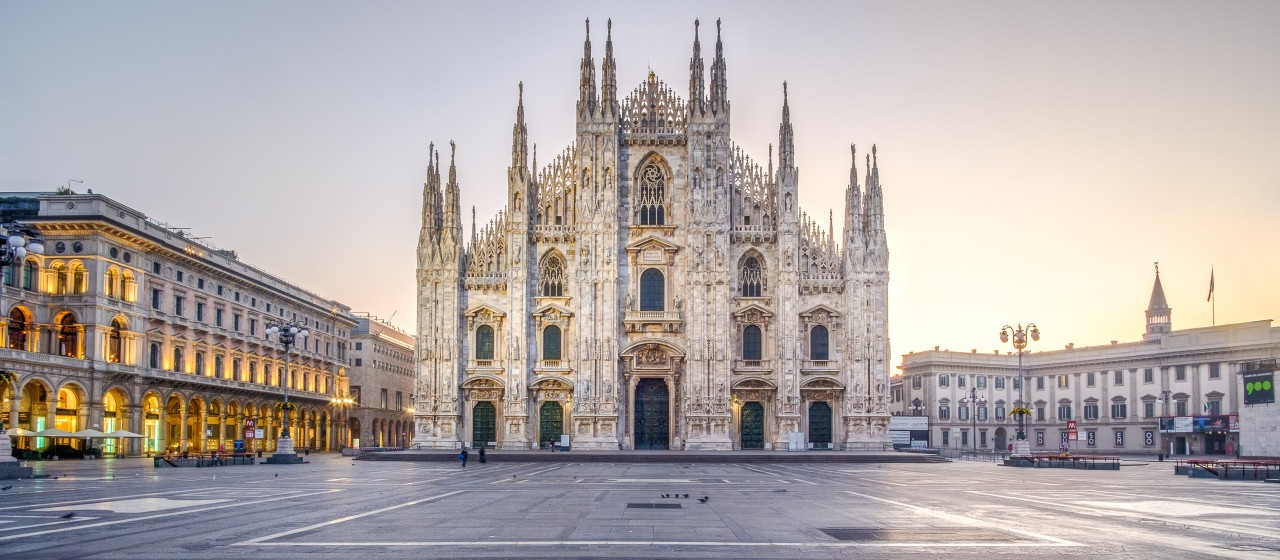Quick response to Covid-19 by Universities in Milano
and what we learned from it

The pandemic has affected every country of the world, at varying speeds and with different levels of response. Italy, the first country outside China to be hit by Covid-19, has managed reasonably well the first two waves of the pandemic, flattening the curve with its lockdowns and public health measures, but also inventing policies to sustain households and businesses affected by the corona crisis.
With a variety of economic emergency measures – loan guarantees to businesses, social transfers to furloughed workers, tax relief for entrepreneurs, distance learning in schools - Italy has passed its experience to other EU countries behind the curve. Italian higher education institutions have been particularly active in facing the Covid crisis.
In particular, Milanese universities dealt with crisis management early on. “Our university didn't stop, in fact, we have never really closed,” proudly says Gianmario Verona, Rector of Bocconi University. With around 270 online courses accessible on the university's digital platform even before the lockdown, Bocconi has launched its own Covid Crisis Lab to explore the socioeconomic impact of pandemics.
Meanwhile, the University of Milan has set up provisions depending on the level of pandemic alarm in the region (red, orange, or yellow). For students in Milano. it has become a daily routine the obligation to wear masks in class and outside class and have your body temperature scanned before entering university buildings, just as online exams and even online graduations have become part of the new reality.
In a couple of weeks, Politecnico made it possible for 45,000 students to attend all lessons remotely. Suffice it to say that, from March to December 2020, 363,232 exams have regularly taken place and 11,976 students were able to graduate. We invested €3 million in digital equipment, providing more than 300 classrooms with video tracking and streaming systems. We increased the number of scholarships and grants to reduce tuitions: 10,000 students are now tax exempt. The number of enrolments rose (+3% for engineering), especially from abroad (+10%). Eventually, everything turned out fine.
This article by Ferruccio Resta, Rector of Politecnico di Milano, tells how Milanese universities were “forced to lead”, experimenting with innovative ways to tackle the pandemic.
The prestigious magazine Science highlights University of Milan, a public university, as highest-ranked university in Europe and 4th worldwide for Covid-19 research.
The University, recognized as 36th in the world for Pharmacy and Pharmacology studies according to QS World University Rankings, with its 287 pubished papers on Covid-19 related research, ranks 1st in Europe and just behind Wuhan-based Huazhong University, Tongji Medical College, and Harvard University. Since the early pandemic outbreak, University of Milan allocated an emergency fund for research projects in the area of Novel Coronavirus characterization and evolution, immune response, and drug development, with a view to making an instant, positive impact on the local community.
The acknowledgment proves the quality and vibrancy of the Milano life sciences ecosystem where emergencies are transformed in new opportunities. Milano researchers and doctors, who have been at the forefront of the pandemic, are now working to prevent an intensification of cases and produce effective treatments.
While the emergency situation arose all of a sudden and posed problems, at Università Milano-Bicocca solutions had to be prompt whilst the contest made impossible any kind of planning.
According to Prof Gabriella Pasi, Vice-Rector for International Relations:
"The University of Milano-Bicocca reacted to the emergency by quickly managing the situation of students who were abroad, and the recognition of their educational credits by proposing flexible solutions. We also offered a psychological support plan for students from European and non-European countries who had undertaken a course of study in our University. Suddenly being at the center of a disruptive phenomenon, in an area at risk, has generated different reactions, all of which permeated by understandable anxiety and a sense of helplessness. This difficult and emotionally engaging period has taught us various things, including the importance of a constant presence and support for those in difficulty, and the application of flexibility when defining solutions to unexpected problems. "
A security protocol has been issued for international guests and students present at our University, while conference call meetings with students continue to be organized, in order to be close to the students, as the video made by the professors of the University of Milano-Bicocca recounts.

 Log in
Log in
